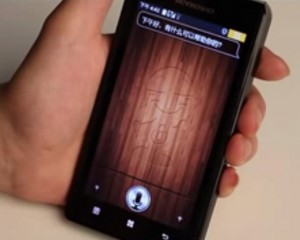The Beijing First Intermediate Court handed down a decision today which will allow a patent infringement lawsuit against Apple Inc. (NASDAQ:AAPL) to proceed, ruling that the patent for the Xiaoi Robot speech recognition voice assistant system is indeed valid. This opens the gates to a continuing infringement lawsuit against Apple for the supposed use of Xiaoi Robot as the basis for Siri, as reported by Reuters.
Though China’s legal system is hardly impartial and frequently serves the geopolitical aims of the Chinese government and its affiliated companies, Zhizhen Network Technology of Shanghai appears to have a strong case in this instance. Xiaoi Robot was released for Android in 2010, and Siri for iOS did not appear until 2011, a full year later. Furthermore, Xiaoi Robot has existed in various forms since 2004, and was patented many years prior to Siri.
A YouTube video confirms that Xiaoi Bot has a very close resemblance indeed to Siri, though it appeared on the scene first. Some observers point out that Xiaoi Bot has apparently “borrowed” some features from Siri as well, but the original idea and patent belong to Zhizhen Network Technology nevertheless.
The initial lawsuit was filed on June 26th, 2012, but could not proceed until a separate court decision was reached regarding the validity of Zhizhen’s patent. Now that the patent on Xiaoi Bot has been ruled to be valid, the original suit is free to proceed, and will likely do so in the coming days. Apple Inc. (AAPL) states that it was “unaware” of Xiaoi Bot when it purchased Siri and continued development of the program, and says that it is “open to reasonable discussions with Zhizhen,” which could even be interpreted as an offer to settle out of court.
 Tim Worstall of the Wall Street Journal argues that the effect of the ruling will eventually prove beneficial by strengthening the legal protection of intellectual property in China. Mr. Worstall posits that if China begins to build up its own stock of IP, then it will be more zealous in defense of foreign IP as well, with the pragmatic motivation of wanting its own intellectual property rights to receive a fair shake in foreign courts.
Tim Worstall of the Wall Street Journal argues that the effect of the ruling will eventually prove beneficial by strengthening the legal protection of intellectual property in China. Mr. Worstall posits that if China begins to build up its own stock of IP, then it will be more zealous in defense of foreign IP as well, with the pragmatic motivation of wanting its own intellectual property rights to receive a fair shake in foreign courts.
Whatever the immediate outcome of the case, it is clear that intellectual property and patents continue to be a Pandora’s box of problems, in strong need of reform but with no clear guidelines on how such changes are to be practically carried out. Suits like this represent something of a gradual evolutionary process nudging patent and IP matters in a direction that it is currently difficult to anticipate.



